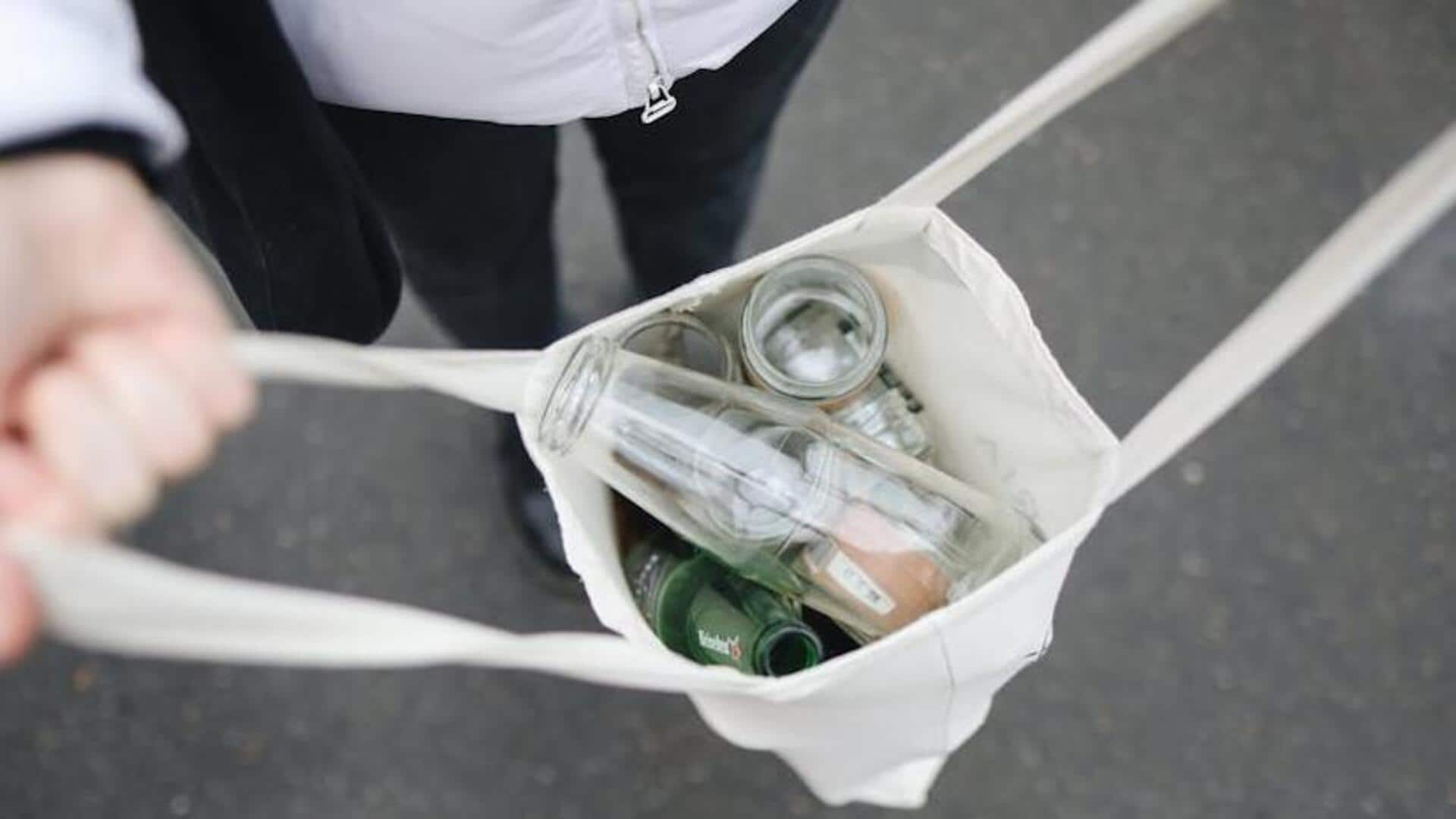
Creating a daily habit of recycling and sustainability practices
What's the story
In the modern world, the significance of recycling and sustainability is paramount. With environmental issues like climate change and pollution posing major challenges, it's more important than ever to cultivate daily habits that positively impact our planet. This article serves as a beginner-friendly guide on how to incorporate easy yet impactful recycling and sustainability practices into your everyday life, ultimately nurturing a greener lifestyle.
Basics first
Start with simple recycling steps
Recycling need not be a rocket science. Start by creating designated bins for paper, plastics, metals, and glass at your home. Learn what is and isn't recyclable in your specific community, as rules can differ. For example, your area might not take certain kinds of plastic. By starting with these foundational steps, you'll slowly but surely integrate recycling into your everyday life.
Minimize waste
Reduce single-use items
One major step toward sustainability is minimizing the use of single-use items like plastic bags, water bottles, straws, and cutlery. Choose reusable options instead. Bringing along a reusable water bottle or coffee cup can significantly cut down on waste over time. And, getting a set of reusable shopping bags is another simple change with a big impact on reducing plastic waste.
Go paperless
Embrace digital solutions
In the digital age, there are numerous ways to go paperless: Request for digital receipts instead of paper ones while shopping or eating out. Opt for electronic bills and statements from your banks and utility providers. This not only cuts down on paper waste but also makes it easier to keep track of everything. Use digital note-taking apps instead of relying on notebooks for reminders or lists.
Choose wisely
Support eco-friendly products
Choose eco-friendly products When shopping for household goods or personal items, seek out products made from recycled materials or those that are biodegradable. Many companies now offer eco-friendly alternatives for everyday products like cleaning supplies, toiletries, and even clothing. By supporting brands with a commitment to sustainability, you're helping to drive demand for more environmentally responsible products.
Nature's recycling
Learn composting basics
Composting organic waste, including food scraps and yard trimmings, significantly decreases landfill waste and enhances soil health naturally. Simply designate a small bin in your kitchen for collecting compostable materials. Investigate local composting facilities, or if you have some outdoor space, start your own compost pile. Composting eliminates methane emissions from landfills and contributes valuable nutrients back into the earth.